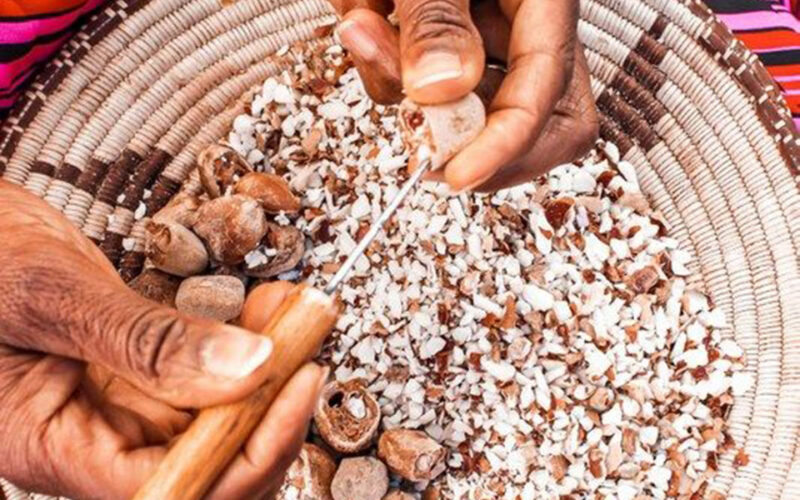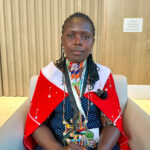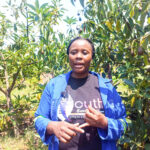VITALIO ANGULA, BIRD
WHEN Matty Neengola retired from his job at the Khomas Directorate of Education in Central Namibia, he knew exactly what he wanted to do. He could finally commit himself full-time to the family business and support his wife Napa whose traditional knowledge of a local fruit had given rise to a flourishing small business – processing and exporting marula oil.
“It is this transfer of knowledge from when I was a little girl that inspired me to take a leap of faith and embark on this entrepreneurial journey of attempting to commercialize marula and bring it on the market as a product which is standardized, safe and consistent,” explained Napa Neengola by way of introduction.
Situated in the bustling township of Katutura, with over 20 000 residents in the heart of Windhoek, Taneta Investments is situated in an area where many informal traders eke out a living from trades ranging from auto repairs to hair salons and liquor outlets.
The company’s premises are at the Bakomoso incubation centre, a municipal initiative by the city of Windhoek that provides infrastructure for small scale enterprises to carry out their business activities. Taneta’s business premises at the centre stands out as an exception to the usual services such as car washes and hairstylists. The small business is essentially an industrial processing unit, producing a finished product from raw material.
Nampa, who is Chief Executive Officer of Taneta Investments, narrated how Pure Marula by Taneta is an extension of a centuries-old traditional knowledge system where Aawambo women would use the oil as a beautifying agent. The oil is protein-rich, so it is easily absorbed, which makes it a particularly effective skin and hair treatment.
The Marula tree, which goes by the scientific name Sclerocarya birrea, is a single-stemmed tree with a wide, spreading crown”. The tree grows up to 18 meters tall, mostly in low altitudes and open woodlands and produces the marula fruit, a round-shaped fruit with a nut inside
According to Nampa, marula oil was also used for its cleansing properties when a newborn was introduced to the family.
Matty Neengola provides tours through the factory for visitors. Workers can be found separating marula from the chaff once it has been crushed, pressed, cooked and filtered. The process seems straightforward but strict production processes have to be adhered to in order to be certified for export to foreign markets such as the USA, where they recently sent a consignment of 5000 viles of marula oil.
“Certification is a major challenge in our operations and we have to adhere to set standards as demanded by our customers,” Nampa Neengola explained.
“Since breaking into foreign markets, we realize that a borderless community of nations is the future of all business interactions”.
“The U.S. embassy through USAID have been strategic partners who helped bring our vision of accessing the US market to fruition,” Matty Neengola explained.
An important part of the company’s work is engaging and economically uplifting communities in which they harvest marula. Nampa Neengola explained how Taneta equips these women through additional training to improve their collection and processing skills, in order to supplement their indigenous knowledge.
“As a commitment to the improvement of the lives of all members of our value chain, Taneta ensures that rural women are fairly reimbursed for their quota,” Nampa.
“We also have a commitment to preserving the environment so we include the well-being of the preservation of the natural habitat by promoting safe use of the environment.”
The connection with community and tradition, as well as ensuring sustainability, runs deep in this small business.
“I was born under a Marula Tree,” Nampa jokingly stated as she offered a historical description of her father’s homestead in northern Namibia, where the tree is abundant. Nampa said she had at least ten marula trees in the homestead where she and her siblings grew up in.
The tree blossoms after the winter season and the fruit falls to the ground, where it slowly ripens.
“Because the tree is seasonal we have to plan our production process accordingly to ensure we have a constant supply to meet our customer demands,” Nampa said.
Planning production and communicating with clients has become a family affair.
“Our three daughters, Nelao, Taleni and Tala have streamlined our communication on the internet and perfected our product offering online to ensure that we gain maximum reward from our collective efforts,” Nampa said.
“I can only say that the future is bright and we look forward to breaking into more markets on the African continent, Europe and the Americas.”
[origincode_photo_gallery_wp id=”46″]














